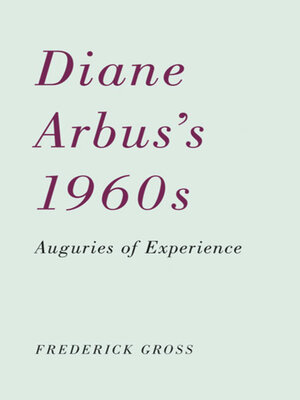
Sign up to save your library
With an OverDrive account, you can save your favorite libraries for at-a-glance information about availability. Find out more about OverDrive accounts.
Find this title in Libby, the library reading app by OverDrive.



Search for a digital library with this title
Title found at these libraries:
| Library Name | Distance |
|---|---|
| Loading... |
In any decade the work of only a very few artists offers a template for understanding the culture and ideas of their time. Photographer Diane Arbus is one of these rare artists, and in this book Frederick Gross returns Arbus's work to the moment in which it was produced and first viewed to reveal its broader significance for analyzing and mapping the culture of the 1960s. While providing a unique view of the social, literary, and artistic context within which Arbus worked, he also, perhaps for the first time anywhere, measures the true breadth and complexity of her achievement.
Gross considers Arbus less in terms of her often mythologized biography—a "Sylvia Plath with a camera"—but rather looks at how her work resonates with significant photographic portraiture, art, social currents, theoretical positions, and literature of her times, from Robert Frank and Richard Avedon to Andy Warhol and Truman Capote. He shows how her incandescent photographs seem to literalize old notions of photography as trapping a layer of the subject's soul within the frame of a picture. For Arbus, "auguries"—as in "Auguries of Innocence," her 1963 photographic spread in Harper's Bazaar—conveyed the idea that whoever was present in her photograph could attain legendary status.
By shifting critical attention from the myths of Arbus's biography to the mythmaking of her art, this book gives us a new, informed appreciation of one of the twentieth century's most important photographers and a better understanding of the world in which she worked.







